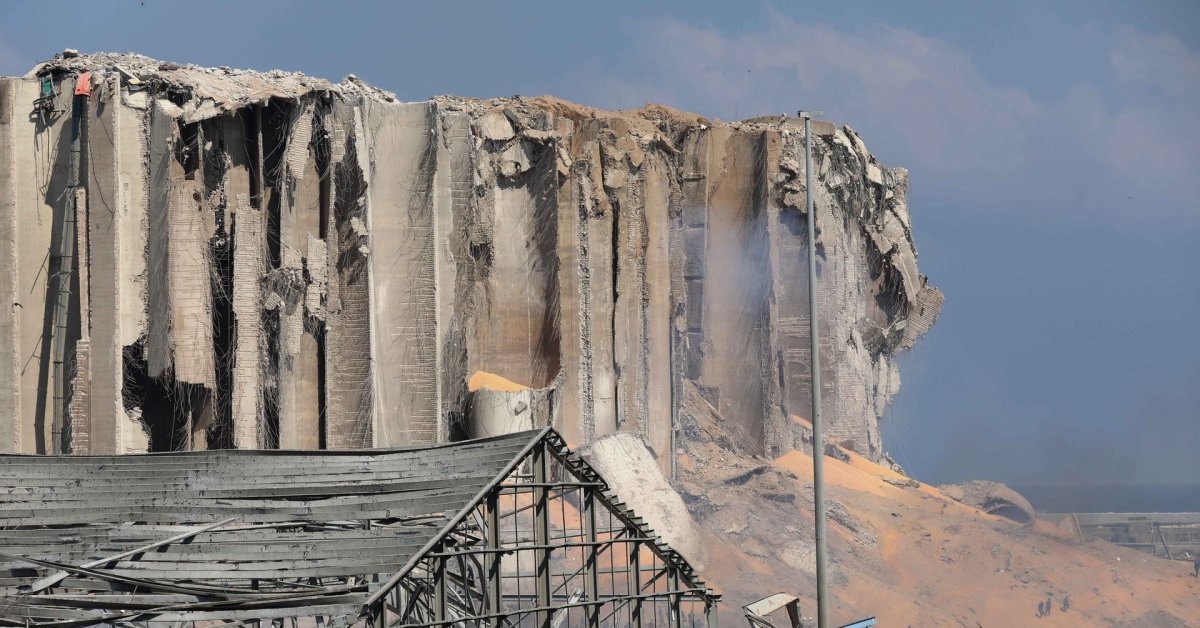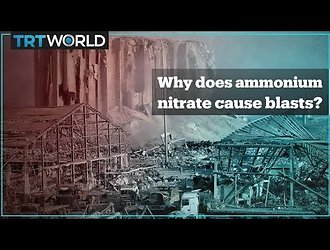
[ad_1]
The country’s prime minister, Hassan Diab, said the explosion was caused by 2,700 tonnes of ammonium nitrate, which was stored in the city’s cargo port. The videos show that there was a fairly strong fire in the area just before the explosion, writes Science Alert.
The chemical formula for ammonium nitrate is NH₄NO₃. It is produced in the form of small porous granules. It is one of the most widely used fertilizers in the world.
At the same time, this compound, often referred to as ammonium nitrate, or simply nitrate, is used quite frequently as an explosive, usually in mining operations where ammonium nitrate is mixed with oil and detonated with an explosive.
For an industrial ammonium nitrate explosion to occur, many unfavorable circumstances must coincide. And it seems that this unfavorable coincidence of circumstances has unfortunately taken place in Beirut.
Possible cause of explosion
Ammonium nitrate itself is not flammable. However, it can act as a source of oxygen and accelerate the combustion of other substances.
Oxygen is essential for the combustion process to take place. Ammonium nitrate granules are a much more concentrated source of oxygen than the gaseous air around us. That is why ammonium nitrate mixed with fuel oil or any other fuel is used in mining.
However, when a high enough temperature is reached, this chemical compound can spontaneously decompose. This decomposition produces gases that include nitrogen oxides and water vapor. Such a sudden vaporization of solid material is an explosion.
The decomposition of ammonium nitrate can be caused by detonation (explosion at the place where the substance is stored) or very strong fire. That’s exactly what happened in 2015. The Tianjin explosion, which killed 173 people, contained flammable chemicals at a chemical plant near ammonium nitrate reserves that caught fire.
Although the exact cause of the Beirut explosion remains unclear, images from the incident suggest that it may have been caused by a fire that broke out in a city port just before the explosion.
An explosion of ammonium nitrate in a fire is quite difficult. This requires that the fire be long-lasting and concentrated in the same place as the granules of this material.
Also, the pellets themselves are not a fuel for the fire, so they must be contaminated or packed with some flammable material.
Human safety is ignored
It is reported that up to 2,700 tons of ammonium nitrate were stored in Beirut for six years without strict storage safety requirements.
There is no doubt that such non-compliance with safety requirements has contributed to the tragic circumstances that have led to such a powerful explosion with a less than exceptional fate on an industrial site.
The ammonium nitrate explosion produces large amounts of nitrogen oxides. Nitrogen dioxide NO₂ is a red gas with an unpleasant odor. Photographs taken in Beirut after the explosion show a light pink color of the smoke caused by the explosion.
Nitrogen oxides are a fairly common component of urban air pollution; These gases can irritate the respiratory tract. Higher levels of this pollutant are of particular concern to people with various respiratory illnesses.
Therefore, the gas dispersed in Beirut, before it dissipates naturally, represents a serious risk to the health of the population of the city; Depending on weather conditions, it may take several days for the gas to dissipate.
[ad_2]
